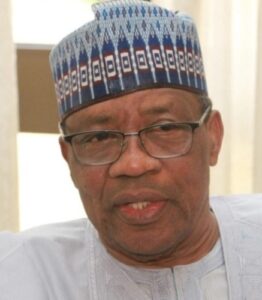Gowon’s Unkept Promise to Protect Igbos Sparked Civil War, Says IBB
Gowon’s Unkept Promise to Protect Igbos Sparked Civil War, Says IBB

Former Nigerian military leader, General Ibrahim Babangida, has revealed that the unfulfilled promise made by General Yakubu Gowon to protect the Igbos in northern Nigeria played a significant role in sparking the Nigerian Civil War. Babangida’s new book, Journey in Service, launched in Abuja on Thursday, discusses the failed commitment that led to the 1966 pogrom, where thousands of Igbos were killed across northern Nigeria.
Babangida recounts that Gowon’s rise to power as Commander-in-Chief of the Nigerian Armed Forces marked a period of increasing tension, especially with Lt-Col. Emeka Odumegwu Ojukwu. Ojukwu, in a broadcast from Enugu, had rejected the appointment of Gowon and insisted that, in the absence of Aguiyi-Ironsi, Brigadier Babafemi Ogundipe, the senior-most officer at the time, should take the position of head of state. This disagreement contributed to escalating tensions across the country, prompting Gowon to take steps to calm the situation.
Gowon’s response was to gather regional leaders, known as the “Leaders of Thought,” to find a way forward for Nigeria. Babangida notes that, in a strategic political move, Gowon released Chief Obafemi Awolowo from prison, where he had been serving a sentence for treason. This gesture earned Gowon crucial support from the Yoruba people at a critical time.
However, Gowon’s assurances to the Igbos that their safety in the north would be guaranteed were not fulfilled, according to Babangida. On September 29, 1966, as the Leaders of Thought were meeting in Lagos, the most brutal killings of Igbos took place across northern Nigeria, sending thousands fleeing to the east. Ojukwu, outraged by the events, decided to withdraw the Eastern Nigerian delegation from Gowon’s Peace and Reconciliation Talks in Lagos, arguing that Igbos outside the east were no longer safe.
In an attempt to resolve the crisis, Ghana’s Head of State, Lt-General Joseph Arthur Ankrah, intervened and proposed a neutral location for peace talks. This led to the landmark Aburi Peace Conference in Ghana in January 1967, where Ojukwu and Gowon met to discuss the future of Nigeria. The result was the Aburi Accord, which has since been a point of contention.
While the eastern Nigerian delegation argued that the agreement supported a loose federation, the federal government maintained that it was a step toward a united Nigeria. Both sides, however, agreed that force should not be used to resolve the crisis. In the aftermath, the federal government issued Decree 8 to reflect their interpretation of the Aburi Accord.
At a crucial meeting of the Supreme Military Council on March 10, 1967, to ratify the decree, Ojukwu boycotted the talks, claiming that the decree violated the spirit of the Aburi Accord. This final disagreement over the interpretation of the accord marked the beginning of the Nigeri
an Civil War.
TRENDING SONGS
 NPMA Appeals to Nigerian Government for Compensation After Lagos Market Fire
NPMA Appeals to Nigerian Government for Compensation After Lagos Market Fire
 Rest Every Four Hours, FRSC Issues Safety Guide for Fasting Motorists
Rest Every Four Hours, FRSC Issues Safety Guide for Fasting Motorists
 NNPC Boss Ojulari Bags UK Energy Institute Fellowship
NNPC Boss Ojulari Bags UK Energy Institute Fellowship
 Shock in Anambra: Bride Disappears Moments Before Wedding
Shock in Anambra: Bride Disappears Moments Before Wedding
 Nigerian Woman Returns ₦330 Million Accidentally Credited to Her Account
Nigerian Woman Returns ₦330 Million Accidentally Credited to Her Account
 APC Don Reach Morocco?’ VeryDarkMan Reacts to Seyi Tinubu Poster
APC Don Reach Morocco?’ VeryDarkMan Reacts to Seyi Tinubu Poster
 Bride Breaks Down in Tears as Wedding Meals Were Kept Secretly While Guests Go Home Hungry
Bride Breaks Down in Tears as Wedding Meals Were Kept Secretly While Guests Go Home Hungry
 Odogwu by Day, Robber by Night: How Marriage Joy Turned Into Tragedy
Odogwu by Day, Robber by Night: How Marriage Joy Turned Into Tragedy
 Nigerian Officials Allegedly Pocket N4–6B Weekly Through Smuggling Cartels at Seme–Badagry Border
Nigerian Officials Allegedly Pocket N4–6B Weekly Through Smuggling Cartels at Seme–Badagry Border
 Ahmad Yerima: Naval Officer to Face No Sanctions After Clash with Wike – Matawalle
Ahmad Yerima: Naval Officer to Face No Sanctions After Clash with Wike – Matawalle
Share this post with your friends on ![]()













